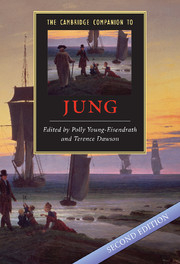Book contents
- Frontmatter
- New developments in the post-Jungian field
- Part I Jung’s Ideas and their Context
- Part II Analytical Psychology in Practice
- Part III Analytical Psychology in Society
- 11 Jung and Buddhism: refining the dialogue
- 12 A Jungian analysis of Homer’s Odysseus
- 13 Literary criticism and analytical psychology
- 14 Jung and politics
- 15 Jung and religion: the opposing self
- Index
13 - Literary criticism and analytical psychology
from Part III - Analytical Psychology in Society
Published online by Cambridge University Press: 28 June 2008
- Frontmatter
- New developments in the post-Jungian field
- Part I Jung’s Ideas and their Context
- Part II Analytical Psychology in Practice
- Part III Analytical Psychology in Society
- 11 Jung and Buddhism: refining the dialogue
- 12 A Jungian analysis of Homer’s Odysseus
- 13 Literary criticism and analytical psychology
- 14 Jung and politics
- 15 Jung and religion: the opposing self
- Index
Summary
“D'où venons-nous / Que sommes-nous / Où allons-nous” (Gauguin, 1897) / The first literary criticism written from a psychoanalytic perspective appeared in 1907, just over one hundred years ago. Very few people even noticed the centenary. Psychoanalytic criticism is no longer as topical as it was in the 1950s or 1960s. Many think that it has run its course; that all that can and needs to be said from such a perspective has already been said. Other more recent approaches have nudged it to the margins of debate. The ninth volume of the recent Cambridge History of Literary Criticism, which covers 'Twentieth-Century Historical, Philosophical and Psychological Perspectives' (Knellwolf and Norris, 2007) accords only one chapter to 'Psychoanalytic Approaches' - one out of thirty chapters, of which only a few pages deal with Jungian criticism and Hillman is not even mentioned. And this more or less accurately reflects the place of Jungian criticism in the broader history of the discipline. In this chapter I want to look at some possible reasons why Jungian criticism lost its place in literary and critical debate. I also want to outline some reasons for thinking that it was at one stage ahead of its time, and to ponder on issues that might need attention if it is ever to take a more prominent place in broader critical debate. There had been both biographical and even psychological studies of literary texts before 1907, but most of these are better described as pathographical studies, that is, they were primarily concerned with social and moral categories (e.g. degeneracy) rather than psychological processes per se (Wright, 1984, pp. 38-39). Freud's (1907) “Delusions and Dreams in Jensen's 'Gradiva'” which consists of an analysis of a work by a minor German novelist, marks the first time that a literary text was examined with the objective of exploring its specifically psychological implications.
- Type
- Chapter
- Information
- The Cambridge Companion to Jung , pp. 269 - 298Publisher: Cambridge University PressPrint publication year: 2008
- 3
- Cited by

